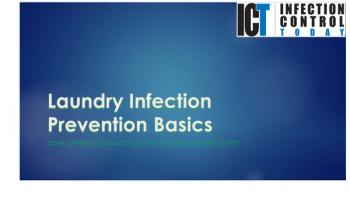
News


From a disease-transmission perspective, medical waste is one important topic that should be within the purview of the infection preventionist. It is well understood that the unsafe disposal of medical waste such as contaminated syringes poses public health risks. Contaminated needles and syringes represent a particular threat, as the failure to dispose of them safely may lead to dangerous recycling and repackaging which lead to unsafe reuse. Contaminated injection equipment may be scavenged from waste areas and dumpsites and either be reused or sold to be used again. The World Health Organization (WHO) estimated that, in 2000, contaminated injections with contaminated syringes caused 21 million hepatitis B virus (HBV) infections (32 percent of all new infections); 2 million hepatitis C virus (HCV) infections (40 percent of all new infections); and at least 260 000 HIV infections (5 percent of all new infections). In 2002, the results of a WHO assessment conducted in 22 developing countries showed that the proportion of healthcare facilities that do not use proper waste disposal methods ranges from 18 percent to 64 percent.













Like a protective tent over a colony of harmful bacteria, biofilms make the treatment of skin infections especially difficult. Microorganisms protected in a biofilm pose a significant health risk due to their antibiotic resistance and recalcitrance to treatment, and biofilm-protected bacteria account for some 80 percent of total bacterial infections in humans and are 50 to 1,000 times more resistant to antibiotics than simpler bacterial infections.













